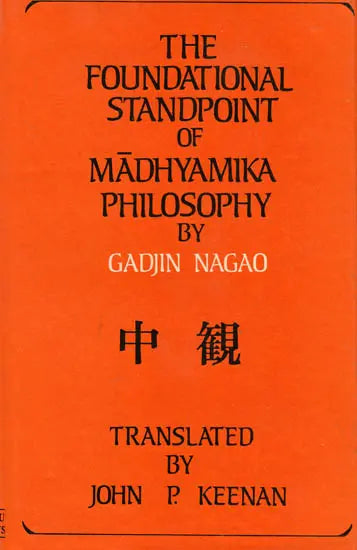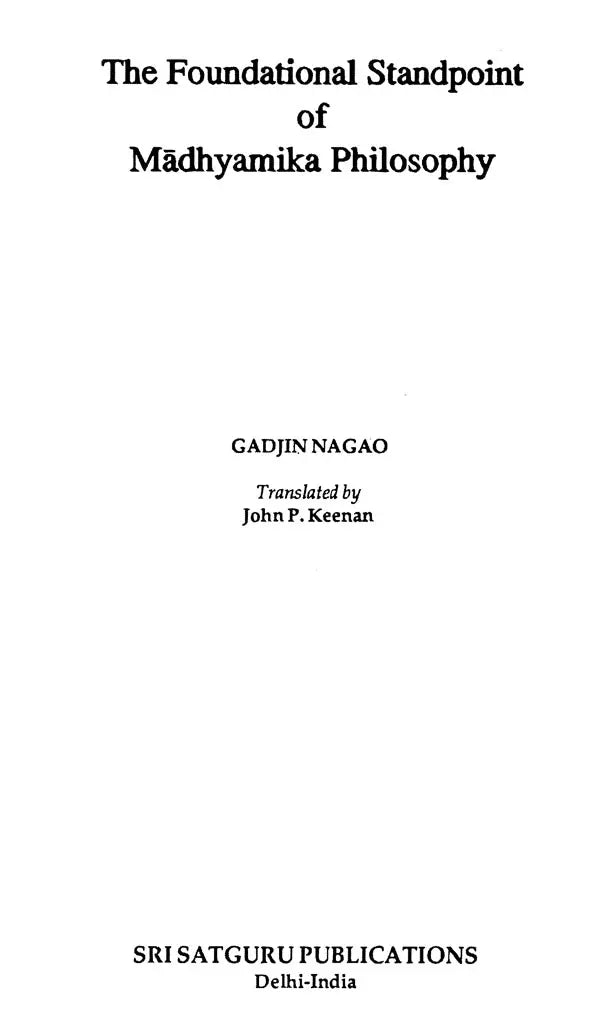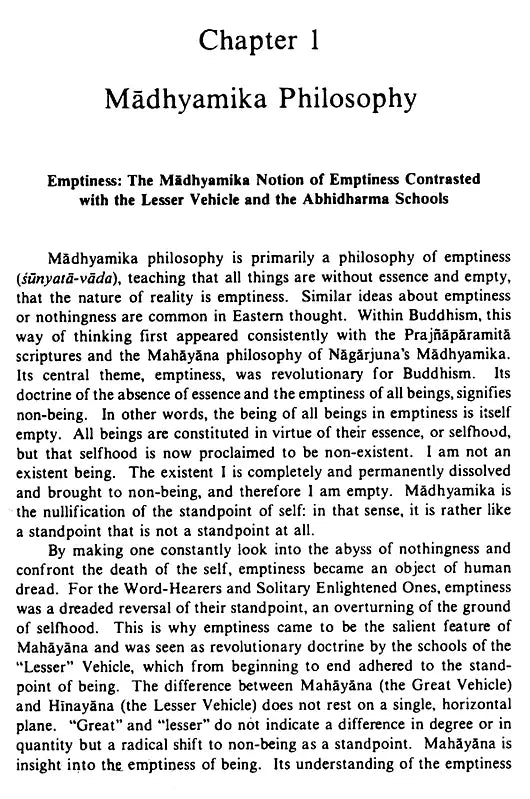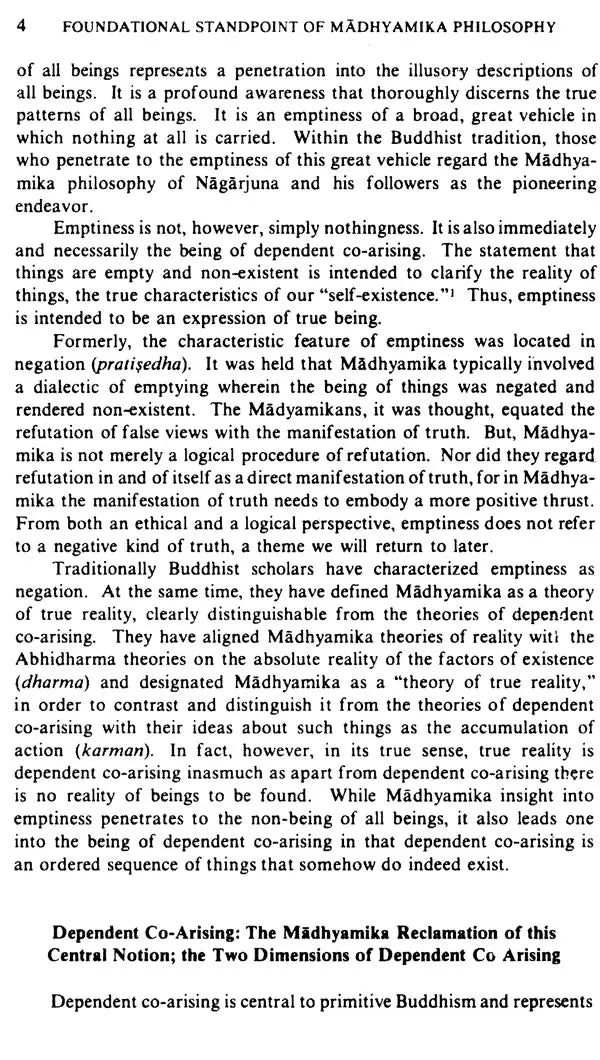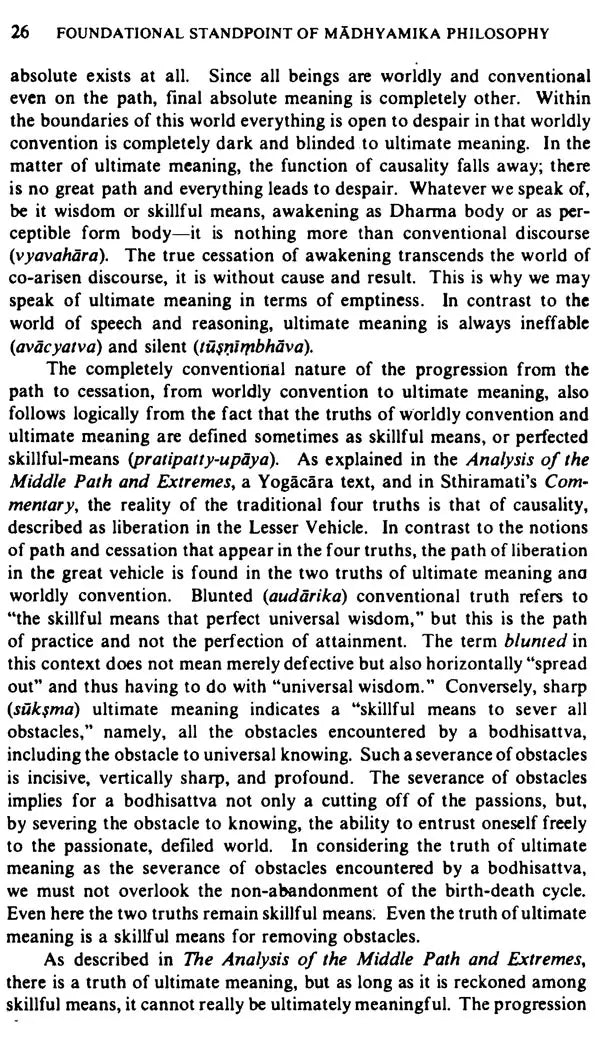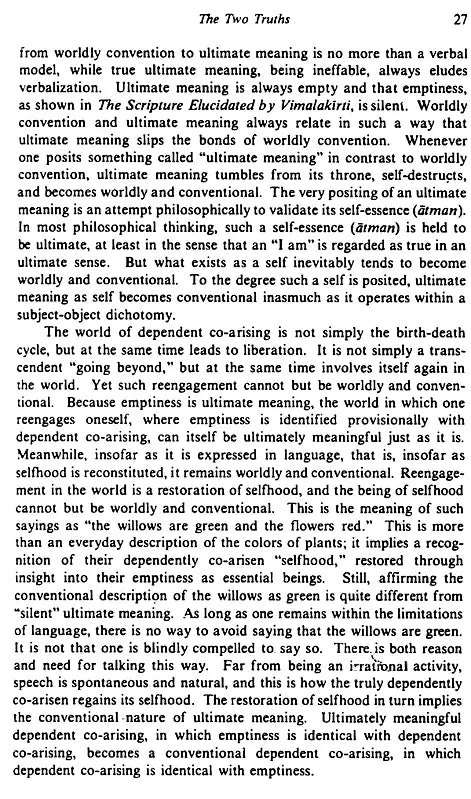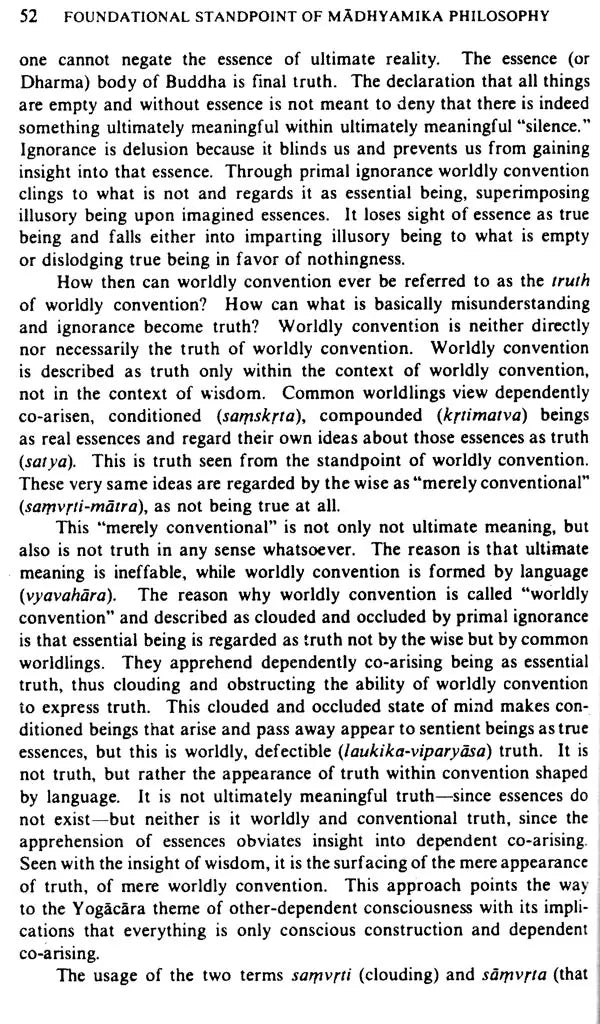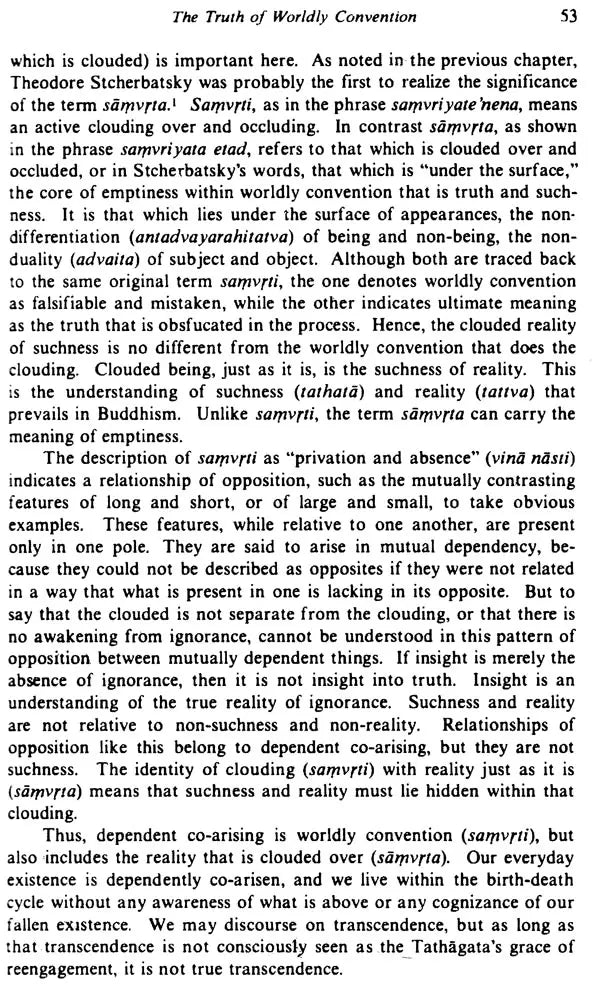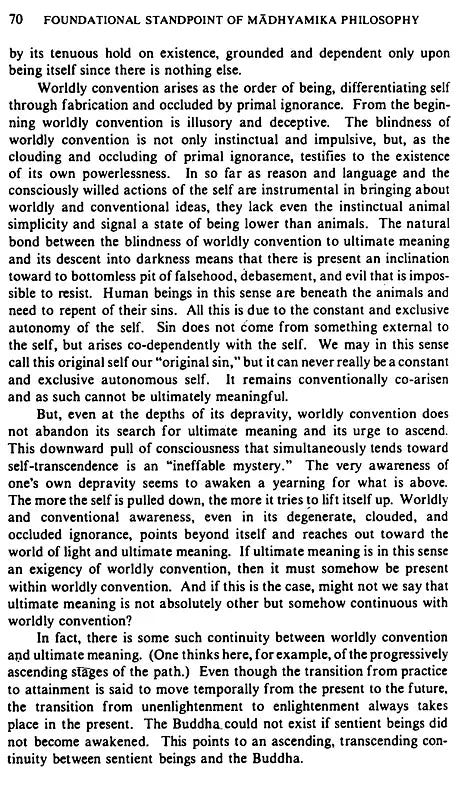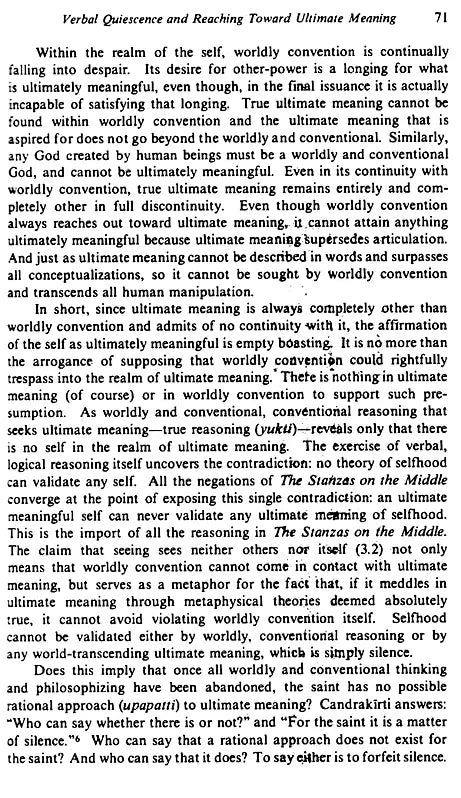Foundational Standpoint of Madhyamika Philosophy, The (SUNY series in Buddhist Studies)
Foundational Standpoint of Madhyamika Philosophy, The (SUNY series in Buddhist Studies) is backordered and will ship as soon as it is back in stock.
Couldn't load pickup availability
Genuine Products Guarantee
Genuine Products Guarantee
We guarantee 100% genuine products, and if proven otherwise, we will compensate you with 10 times the product's cost.
Delivery and Shipping
Delivery and Shipping
Products are generally ready for dispatch within 1 day and typically reach you in 3 to 5 days.
Book Details:
-
Author: Gadjin Nagao
-
Publisher: Sri Satguru Publications
-
Language: English
-
Edition: 1989
-
ISBN: 9780887069536
-
Pages: 194
-
Cover: Hardcover
-
Dimensions: 22.5 cm x 14.5 cm
-
Weight: 340 gm
Book Description:
From the Jacket:
This scholarly work provides a profound linguistic and philosophical analysis of Madhyamika philosophy in connection with Chi-tsang’s Chinese Madhyamika and Yogacara. Written by one of the foremost Buddhist scholars, Gadjin M. Nagao, this book offers a deep and clear interpretation of the foundational philosophy of Mahayana Buddhism. The author’s unique approach draws from Sanskrit, Tibetan, Chinese, Japanese, and Western sources, making it a rare and significant contribution to Buddhist studies. This well-organized, highly readable, and faithful translation is backed by a robust understanding of Madhyamika thought.
Charles Wei-hsun Fu, a Temple University scholar, praises the book as a scholarly masterpiece and recommends it as a key text for graduate and undergraduate courses on Mahayana Buddhism.
Foreword:
Madhyamika philosophy, initiated by Nagarjuna, offers profound insights into the nature of reality, focusing on emptiness and dependent co-arising. This philosophy challenges traditional metaphysical systems, aiming to express ultimate meaning through the recognition of the failure of language to capture it fully. It also deals with the two truths: the ultimate truth of emptiness and the conventional truth of worldly phenomena.
Madhyamika challenges the conceptualism of Abhidharma (the Buddhist system of categorizing and analyzing phenomena) by deconstructing essentialism and reification. Nagarjuna’s logical argumentation aims to dismantle these false conceptual frameworks and illustrate how all phenomena are empty of inherent existence.
This approach resonates with Western philosophers like Heidegger and Whitehead, who also emphasize interdependence and the emptiness of essentialist concepts. However, Madhyamika also has its own unique tradition and is deeply embedded in Indian Buddhist context. It offers dynamic insights into illusion and dialectical reasoning, which have yet to be fully embraced by Western philosophical traditions.
Preface:
The author emphasizes that the Madhyamika philosophy of Nagarjuna, grounded in the Prajnaparamita scriptures, is the foundation of Mahayana Buddhism. It presents two intertwined themes:
-
The Identity of Emptiness and Dependent Co-arising: Madhyamika philosophy identifies these two aspects as one, offering a unique understanding of the world.
-
The Two Truths: The ultimate truth of emptiness and the conventional truth of worldly phenomena.
These two themes reflect the relationship between ultimate meaning and worldly convention, offering a coherent view of how all phenomena arise interdependently and are empty of inherent essence. The tension between these two truths forms the core of Madhyamika discourse.
Nagao also explores the relationship between Madhyamika and Yogacara philosophy, asserting their organic connection within Mahayana thought. Madhyamika challenges metaphysical essentialism, focusing on the nature of reality through a logical and analytical lens, while also remaining open to the immediacy of awakening.
The critical philosophical discourse presented by Nagao seeks to reclaim Madhyamika for modern philosophical dialogue, addressing how this ancient tradition intersects with contemporary issues in metaphysics and ethics.
Key Themes:
-
Emptiness (Śūnyatā): A central theme in Madhyamika philosophy, emphasizing the lack of inherent existence in all things.
-
Dependent Co-arising (Pratītyasamutpāda): The principle that all phenomena arise interdependently and do not exist independently.
-
Two Truths: The distinction between ultimate truth (emptiness) and conventional truth (worldly experiences).
-
Critique of Essentialism: Nagarjuna’s logic dismantles metaphysical essentialism and affirms the empty nature of all things.
-
Madhyamika and Yogacara: The interconnection between these two major Mahayana schools of thought, emphasizing their shared foundations and unique contributions.

